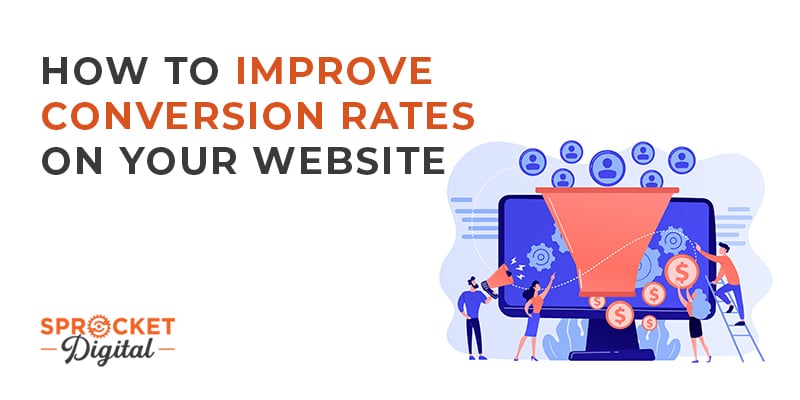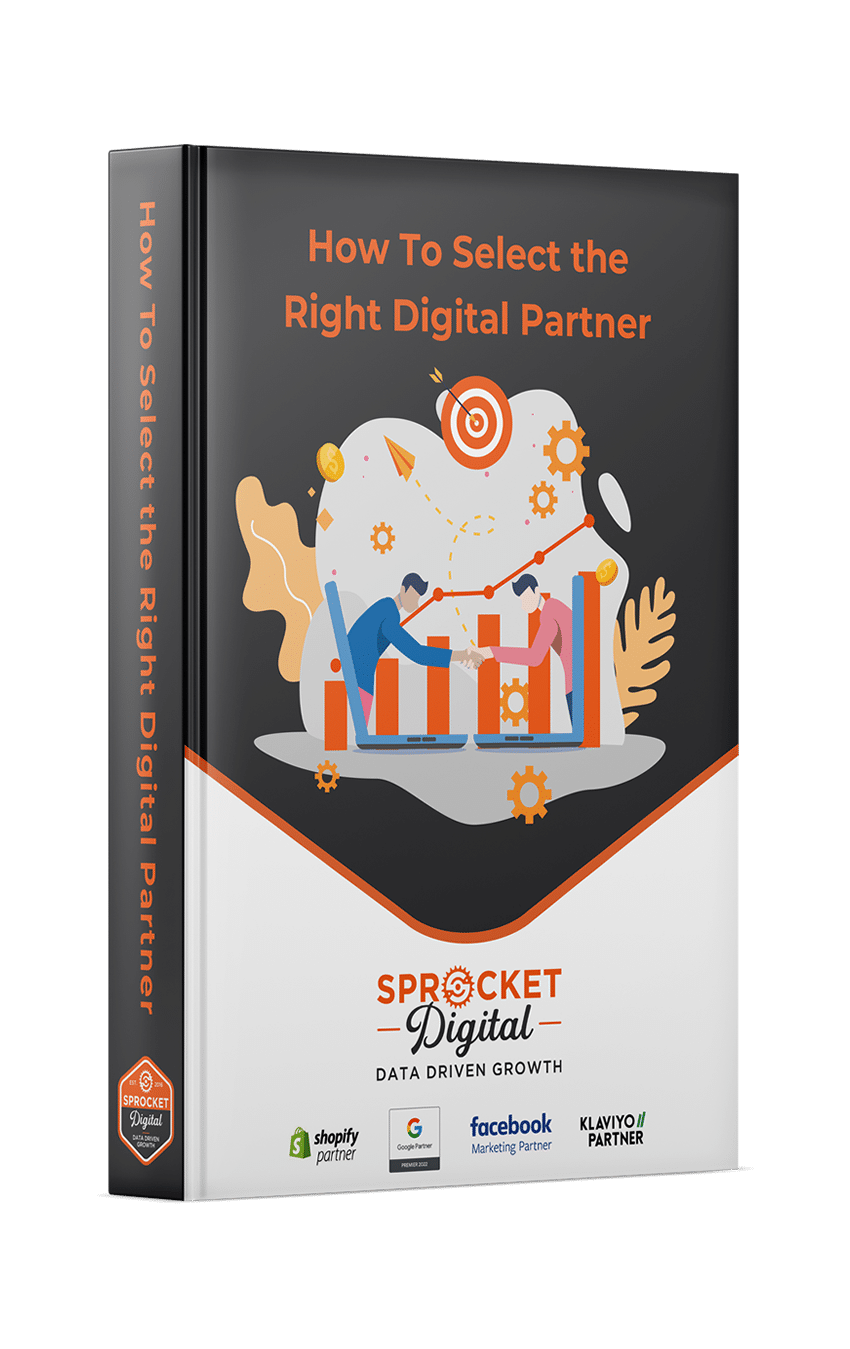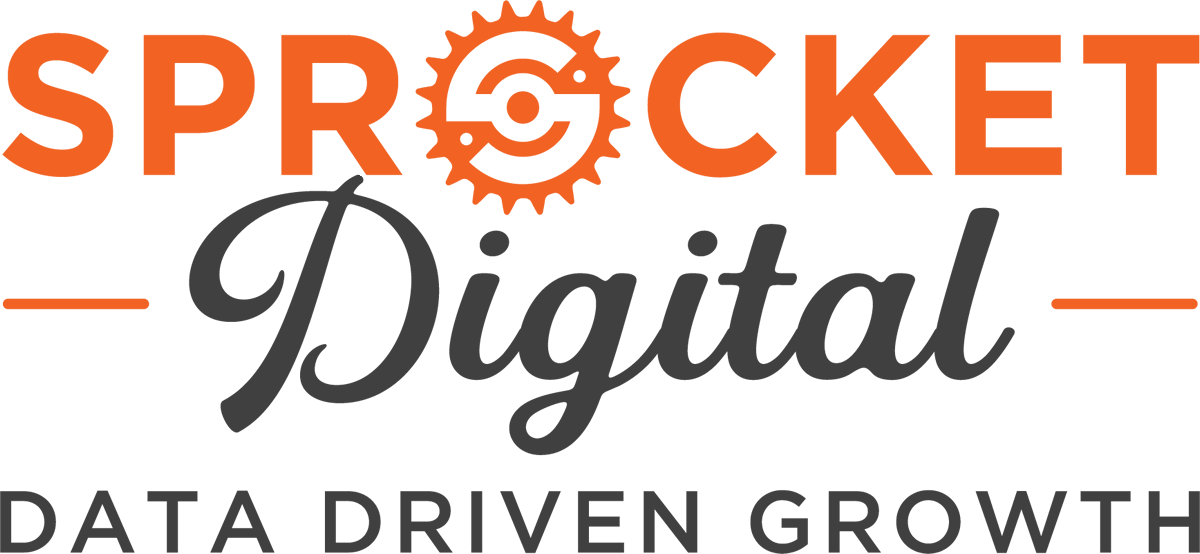Seven steps to higher sales, signups, and revenue for your business
Your website conversion rate is a key indicator for how effective your website is at turning visitors into customers. Whether you’re selling a product or a service, your goal is for them to “buy”, “sign up”, “book now”, or “contact”.
But only 22% of businesses are satisfied with their conversion rates.
The average conversion rate across all industries is between 2-4%, but with conversion rate optimisation it’s possible to incrementally increase that percentage to net you more sales, leads, and signups over the long term.
“What makes a ‘good’ conversion rate depends entirely on the product or service offered, but the rate itself shouldn’t be the focus – what’s important is growing that rate over time.”
– Josh Sexton, Digital Performance Director
There are multiple ways to increase conversions on your website, from reducing the number of form fields, to providing convincing social proof. Here are seven easy steps to increase conversion rates on your website.
1. Simplify your forms & sign up process
To encourage visitors to complete and submit forms on your site, it helps to make them as simple as possible while still getting the information that you need. As an example, one business increased their conversions by 120% when they reduced the number of form fields from 11 to 4.
If your website requires customers to log in or create a profile, this process can be made more efficient by offering third-party signup services via Google or Facebook. Similarly to form submissions, when this process is streamlined and easier for the user they are more likely to complete it.
2. Add social proof
Social proof in the form of testimonials, reviews, and case studies adds enormous value to your website and plays an important part in increasing conversions.
“Social proof is the best way to build trust online, which has a huge impact on both lead and sales conversion rates”
– Josh Sexton, Digital Performance Director
The purpose of social proof is to demonstrate that other customers have had a positive experience with your business. Product reviews are 12x more trusted than company copy, as consumers believe the word of their peers over a company who is trying to sell to them. No matter how well your website copy is worded, it can’t compete with strong social proof.
3. Make your website easier to navigate
Your website should be designed with the customer’s journey in mind – how did they land here, and what task are they trying to complete? Make it easy for your customers to find the information they need, without getting lost wondering where to go next.
Simple changes to make include structuring your page around headlines and subheadings, keeping paragraphs to 1-2 sentences max, driving each page toward a clear call to action, and ensuring there’s enough white space around your content so it doesn’t overwhelm the reader.
4. Don’t be afraid to experiment
Testing is an important part of the process of conversion rate optimisation, to make sure your changes are having a positive effect on the page/site as a whole.
A/B testing programs can let you run two versions of a page side by side to test different headlines, calls to action, images, and layouts. You can also use it to test new form field options, until you find the optimal combination.
“Test variables one at a time – the more variables that are changed for each test, the harder it is to determine what variable led to the resulting improvements in your conversion rate. It is far better to work slowly and methodically than to try everything at once.”
– Josh Sexton, Digital Performance Director
5. Remove obstacles to purchase
When your customer reaches the final stage of their journey, you have a final chance to remove any barriers to purchase to encourage them to take the closing step.
This could include a money-back guarantee to remove the risk associated with making a purchase online. This way they can be confident that if they’re not satisfied with the product, they can return it with no loss of money.
Live chat fulfils a similar function, allowing customers to ask questions to ensure that a product is right for their needs before committing to a purchase. It also gives your sales team an opportunity to up-sell or recommend related products.
6. Add a gentle pop-up
When done well, pop-ups can be a useful tool for growing your business and delighting your customer. They can be used to offer discount codes, invite visitors to sign up for a newsletter, remind them of a sale, or offer a lead magnet.
To make sure your pop-ups are not invasive or repetitive, you can add a delay (either time on page or scroll point), make sure the ‘X’ to close the window is easy to locate, and use cookies to ensure that users only see the pop-up once per visit.
7. Increase the sense of urgency and scarcity
One of the most powerful emotions to evoke in marketing is the sense of FOMO – fear of missing out. 69% of millennials report experience FOMO, the highest of any age group.
A limited time offer with a running countdown, or a warning that there’s only ‘X’ number of stock remaining is a great way to trigger a sense of urgency in your visitors and encourage them to purchase before they miss out.
Begin your conversion optimisation journey now
With these steps, you can increase the conversion rate on your website to grow your sales, signups and revenue.
Sprocket Digital has years of experience helping businesses to optimise their websites, ads, and marketing to help their business thrive.
“We have a great track record of increasing conversion rates for our clients. We make improvements across the board through website changes, campaign optimisations, creative tests, sales promotions, email automation and click fraud prevention.”
“We helped one of our clients – Pushbikes – to increase their conversion rate from 0.5% to 1.26% in the first four months of working with them. We’re always aiming for that upward trajectory.”
– Josh Sexton, Digital Performance Director




